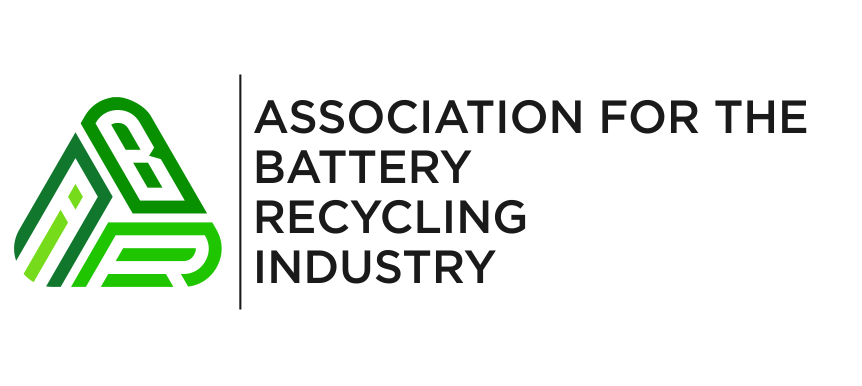27 May 2024
1. Victoria - Are you a responsible entity in any section of the battery recycling value chain? If so, you need to notify Recycling Victoria and prepare a CERCC Plan
Victoria is implementing measures to strengthen the resilience of the waste sector and support the move to a circular economy. The next major step in operationalising this process is now complete - the release of Recycling Victoria’s Circular Economy Risk, Consequence and Contingency Plan 2024. This allows participants across the value chain - collectors, consolidators and recyclers of batteries (all chemistries) - to determine if they are responsible entities. That is they are responsible for a significant part of the services in that section of the chain e.g. collection, logistics and reycling.
If you identify as a Responsible Entity, the Plan explains next steps including notifying Recycling Victoria and preparing your own Plan to manage risks of supply chain interruptions.
Recycling Victoria is running information sessions on the 2024 Plan and requirements of responsible entities in preparing their own Responsible Entity Risk, Consequence and Contingency (RERCC) Plans. These sessions will discuss:
key dates for plan preparation and submission by responsible entities and Recycling Victoria
the responsible entity self-assessment process to explain the steps and criteria
the 60-day notification requirement if you are a responsible entity
how to prepare a RERCC Plan
Information sessions are:
Monday 3 June 2024, 10:00 am to 11:00 am ,Register via Microsoft Teams
Wednesday 12 June 2024, 3:00 pm to 4:00 pm, Register via Microsoft Teams
Friday 14 June 2024, 10:00 am to 11:00 am, Register via Microsoft Teams
2. Certification Framework and Processes for Reusing EV/Hybrid Batteries - IM-Group Presentation (25 June)
Many thanks to ABRI Member, IM-Group, who will share an update on work undertaken with the National Transport Research Organisation (NTRO) to investigate and prove the concept of a robust technical ReUse Framework against which commercial process/service providers can be independently assessed and evaluated by an external certifier, such as NTRO.
Electric Vehicles (EVs) & Hybrid Battery Electric Vehicles (HBEVs) are fast becoming the standard for energy-efficient, responsible, climate-conscious travel.
These vehicles are powered by battery technology. Notwithstanding, it is recognised that the service level/performance provided by such batteries does reduce over time, towards a finite service life. An industry sector is emerging, but (currently) there is significant variation in the approach, technical competency, ethics, and quality of current commercial process providers.
Achieving compliance with the framework will result in the award of an industry-recognised certificate, which would afford the process/service provider recognition and commercial certainty over uncertified entities.
Details: Online, 1-2pm, Tuesday 25 June, Register
3. Standards and policy solutions to support a battery circular economy - emerging pathways
Over the last two months, it’s exciting to see recognition of the importance of standards and policy progress to develop a battery circular economy. There is recognition of the significant amount of work needed to achieve circularity. And it is pleasingly to see that pathways are emerging to get there. Reports of interest to the battery recycling sector:
NSW EPA delivering a battery circular economy - Identification of key challenges to achieving battery circularity - outcomes of industry consultation - April 2024
Insurance Council of Australia - Charging Ahead: Electric Vehicles & Insurance - May 2024 - Interesting observations on:
Role and importance of standards for the insurance sector in assessing risk
Need to expand and strengthen the battery repair and recycling sector
Call on the Federal Government to invest in local battery recycling facilities to appropriately manage end of life EV batteries
UL Solutions presentation (May 2024) on their work in developing standards and an update on what’s happing re EV battery repurposing standards. UL acknowledges that in such a new and evolving industry, standards need to be under continuous maintenance:
Standards for repurposing or remanufacutring EV batteries Overview of ANSI/CAN/UL 1974:2023: the Standard for Evaluation for Repurposing or Remanufacturing Batteries
4. ABRI Member Events
25 Jun 1-2pm Online – IM-Group presenation Certification Framework and Processes for EV/Hybrid Batteries Register
UPDATE - 15 Aug Sydney – 2024 ABRI Battery Recycling & Manufacturing Summit. Tickets are now available. The ABRI Executive Committee has reduced ABRI member ticket prices by 20% from 2023 ticket prices as a value add for ABRI membership. Early bird finishes Friday 6 June. Purchase tickets.
5. ABRI media, submissions and stakeholder engagement
23 May - ABRI Battery Recycling Presentation to Waste Management & Resource Recovery Association Annual Tasmanian Forum
24 May - Media Release Urgent need for action timeline to implement Battery Strategy
3 June - ABRI represents industry on the Department of Climate Change, Energy and Environment E-stewardship Reform Working Group
5 July - ABRI represents industry on the Qld Department of Environment, Science and Innovation Management of End of Life Batteries Stakeholder Reference Group
